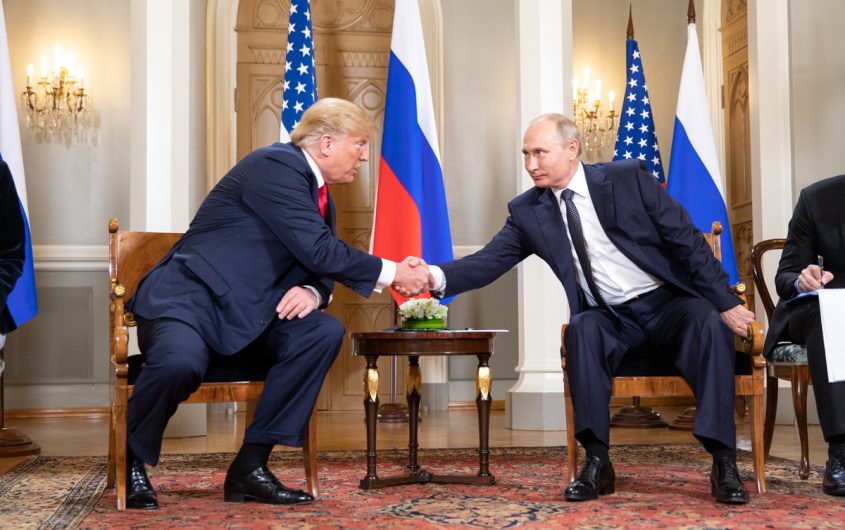
Official White House Photo by Shealah Craighead
The Future of the German-American Relationship with Russia
National elections in both the United States and Germany coming in the next year will have major implications for western policy on Russia. Germany under Chancellor Angela Merkel has shaped the western response to Russia’s aggression in Ukraine. As she will be leaving the scene after the federal election in the fall of 2021, questions about the continuity of German and European policies regarding sanctions, nuclear strategy, and NATO’s posture in the Baltic states will be open. Will her successor have the same commitment to Merkel’s policies and where might we expect changes? The U.S. presidential and congressional elections will also have major implications for Russia policy. What are the prospects of a second Trump administration or a Biden presidency for American policy on Russia, including the contentious Nord Stream 2 pipeline and NATO nuclear and conventional deterrence?
Join AGI for a discussion with Professor Angela Stent of Georgetown University, author on a number of major books on Germany, Russia, and the United States, and German Ambassador to Poland Rolf Nikel, who has served as Russia policy advisor in the German Chancellor’s office.
Rolf Nikel has served as Ambassador of the Federal Republic of Germany to Poland since 2014. He was Government Commissioner for Arms Control and Disarmament. He has also worked in embassies in Moscow, Nairobi, Washington, and Paris and served in the German Chancellor’s Office from 1999 to 2001 and again from 2006-2011.
Angela Stent is Director of the Center for Eurasian, Russian and East European Studies and Professor of Government and Foreign Service at Georgetown University. She is also a Senior Fellow (non-resident) at the Brookings Institution and co-chairs its Hewett Forum on Post-Soviet Affairs. From 2004-2006 she served as National Intelligence Officer for Russia and Eurasia at the National Intelligence Council. From 1999 to 2001, she served in the Office of Policy Planning at the U.S. Department of State. Her publications include: “Russia and Germany Reborn: Unification, The Soviet Collapse and The New Europe” (Princeton University Press, 1999); “From Embargo to Ostpolitik: The Political Economy of West German-Soviet Relations, 1955-1980” (Cambridge University Press, 1981), The Limits of Partnership: US-Russian Relations in the Twenty-First Century” (Princeton University Press, 2014 and “Putin’s World: Russia Against the West and With the Rest” (Twelve, 2019).
Stephen F. Szabo is a Senior Fellow at AGI, where he focuses on German foreign and security policies and the new German role in Europe and beyond. He was the Executive Director of the Transatlantic Academy, a Washington, DC, based forum for research and dialogue between scholars, policy experts, and authors from both sides of the Atlantic. Prior to joining the German Marshall Fund in 2007, Dr. Szabo was Interim Dean and Associate Dean for Academic Affairs and taught European Studies at The Paul H. Nitze School of Advanced International Studies, Johns Hopkins University. He served as Professor of National Security Affairs at the National War College, National Defense University (1982-1990). He received his PhD in Political Science from Georgetown University and has been a fellow with the Alexander von Humboldt Stiftung, the Woodrow Wilson International Center for Scholars, and the American Academy in Berlin, as well as serving as Research Director at AGI.
Support for this event was generously provided by The German Marshall Fund of the United States.







